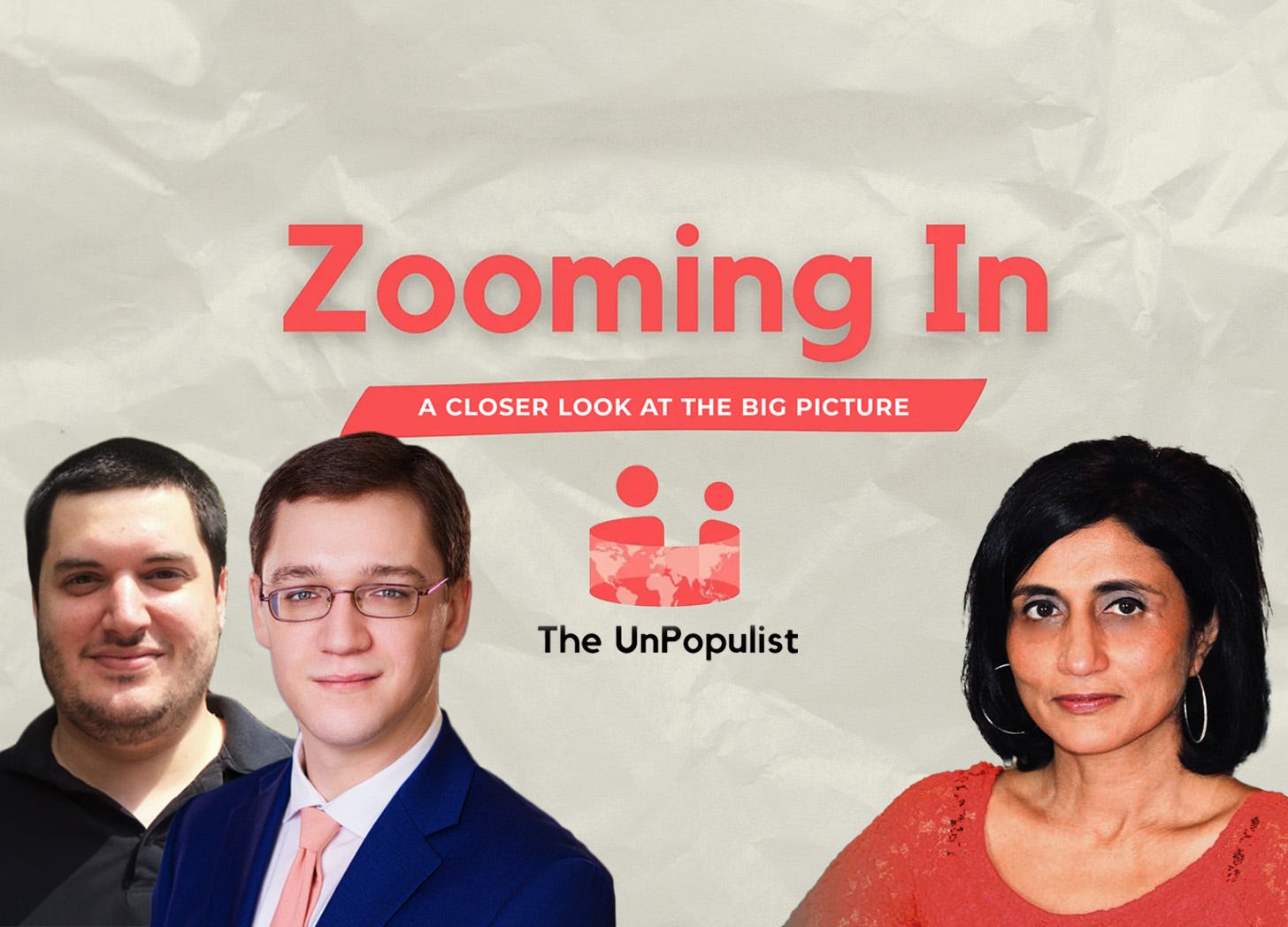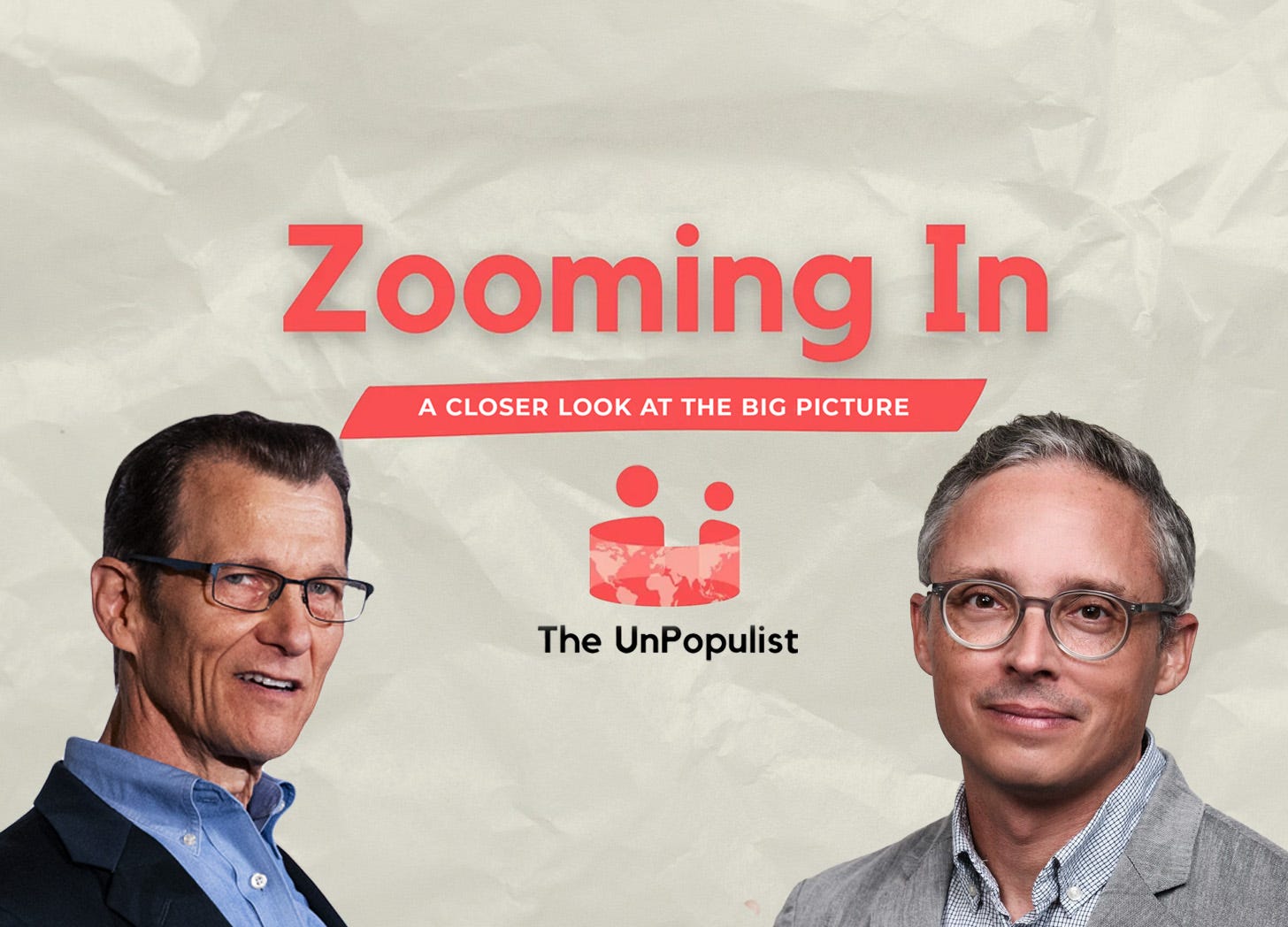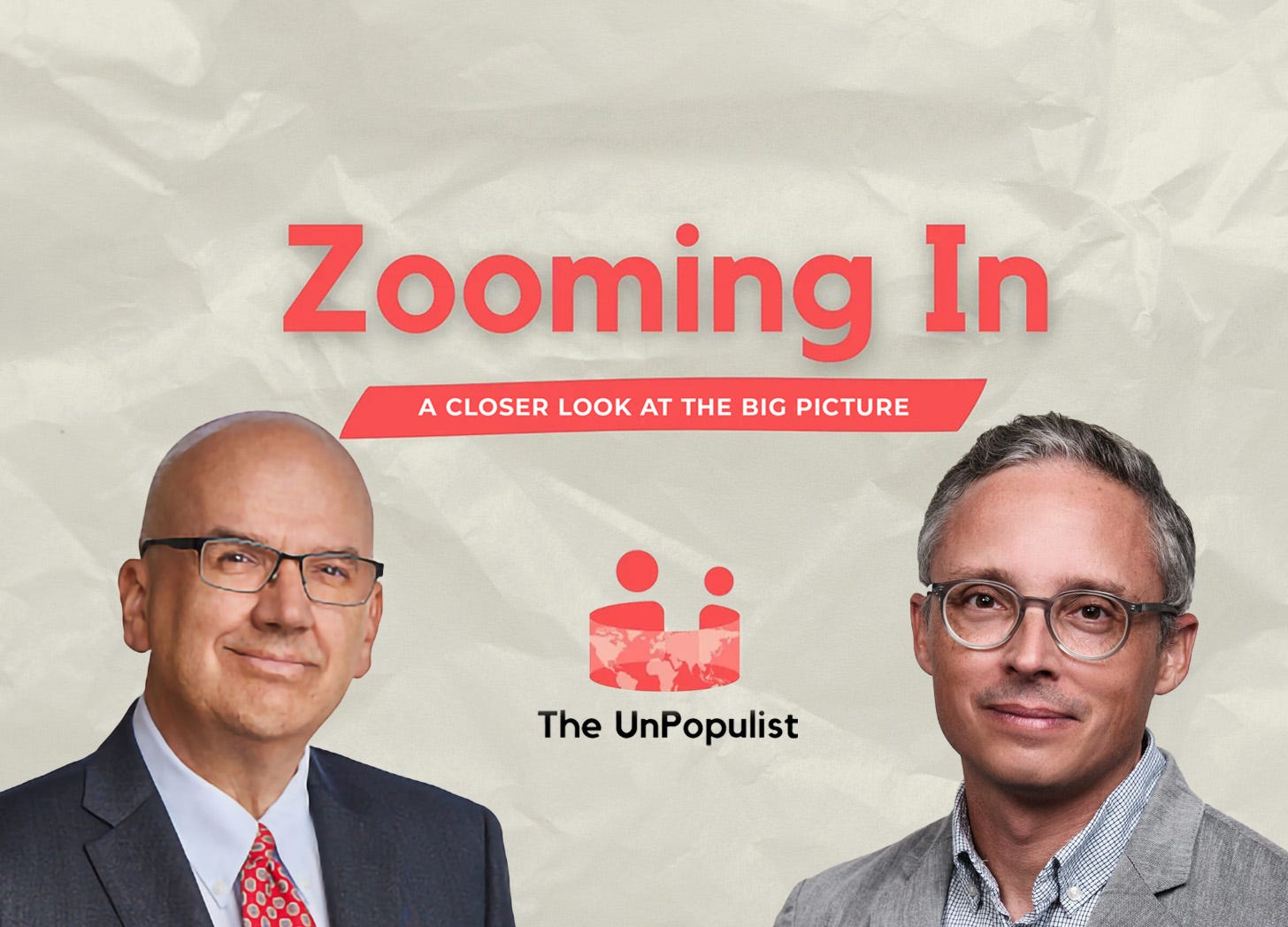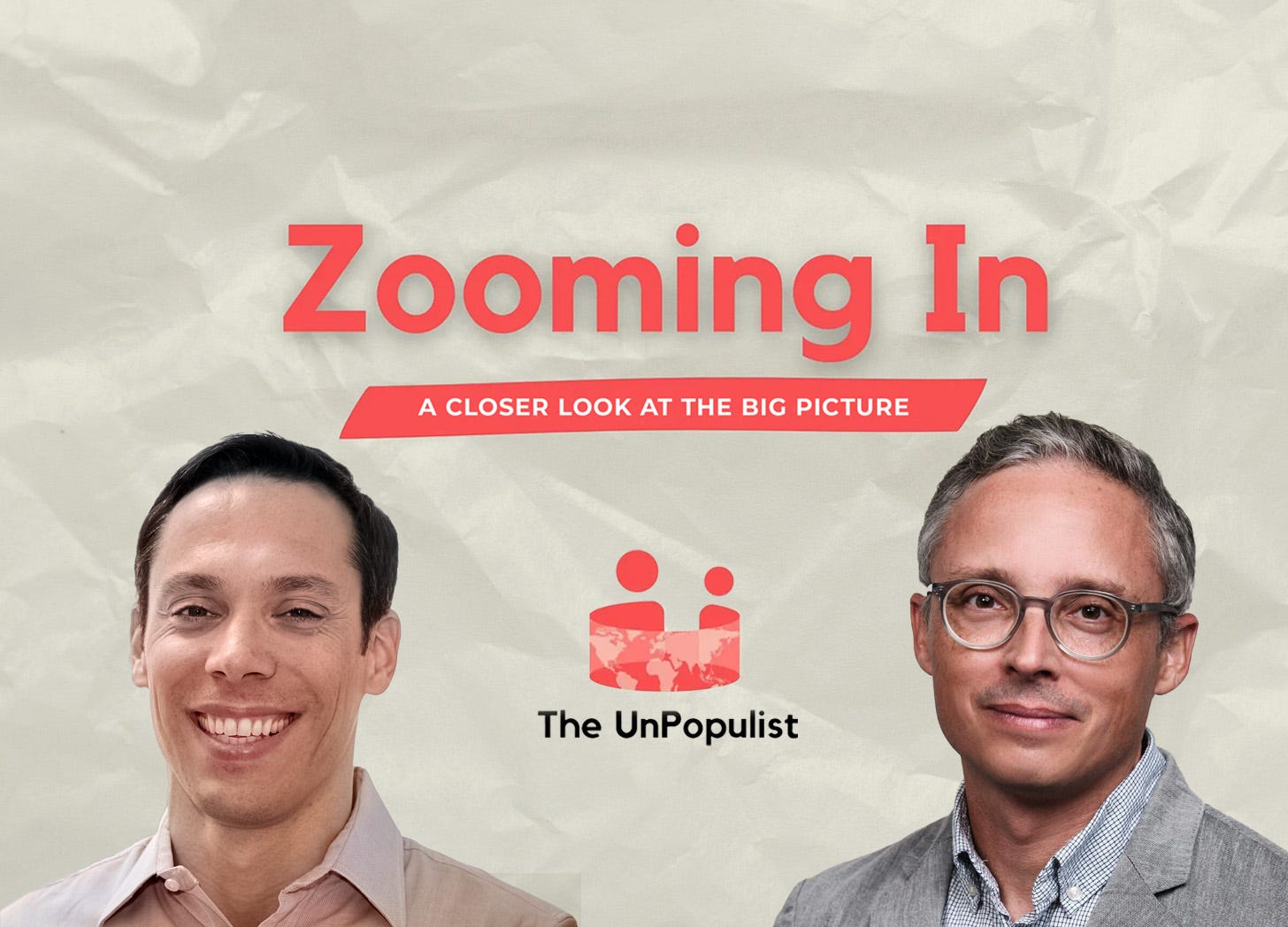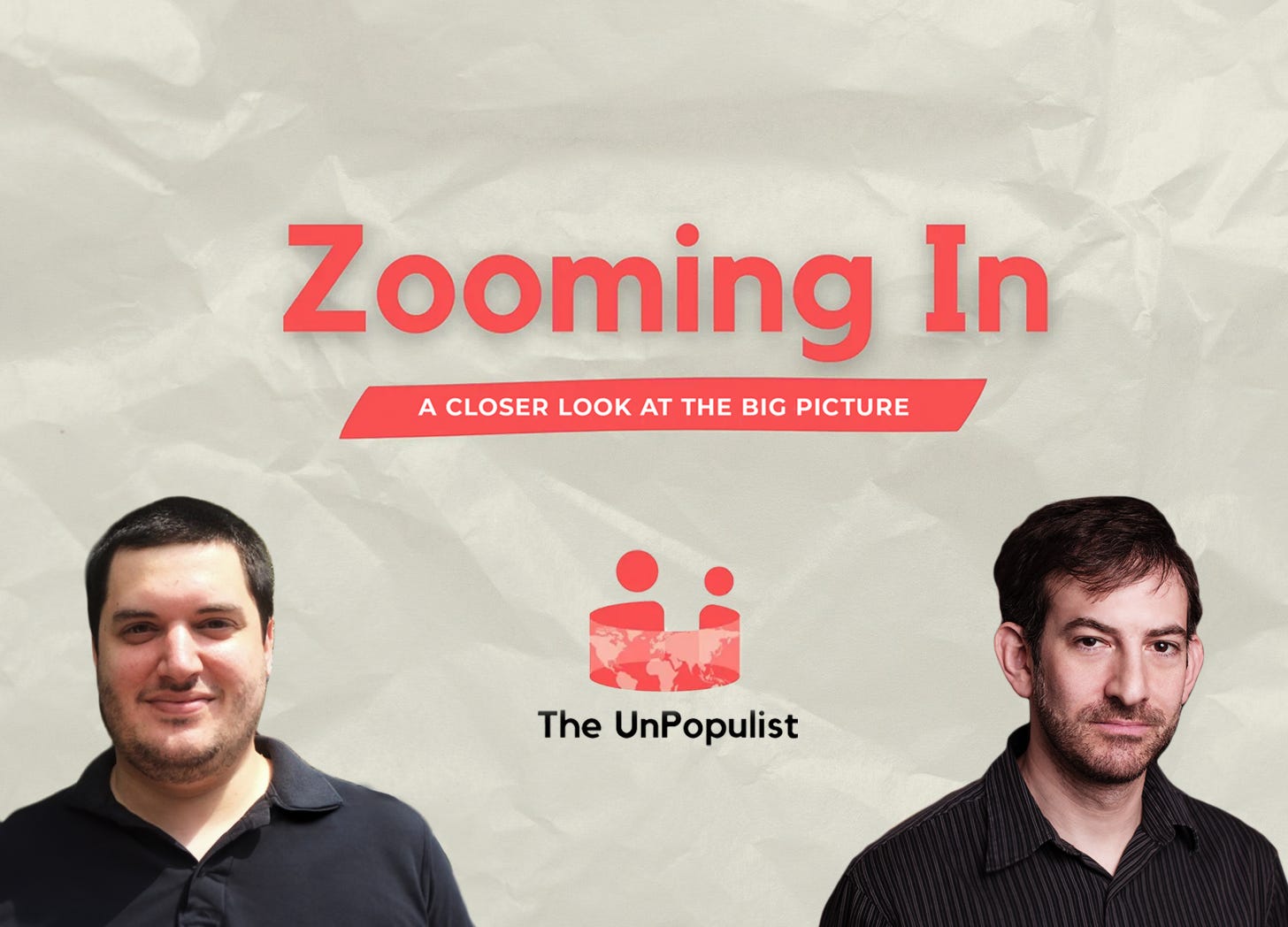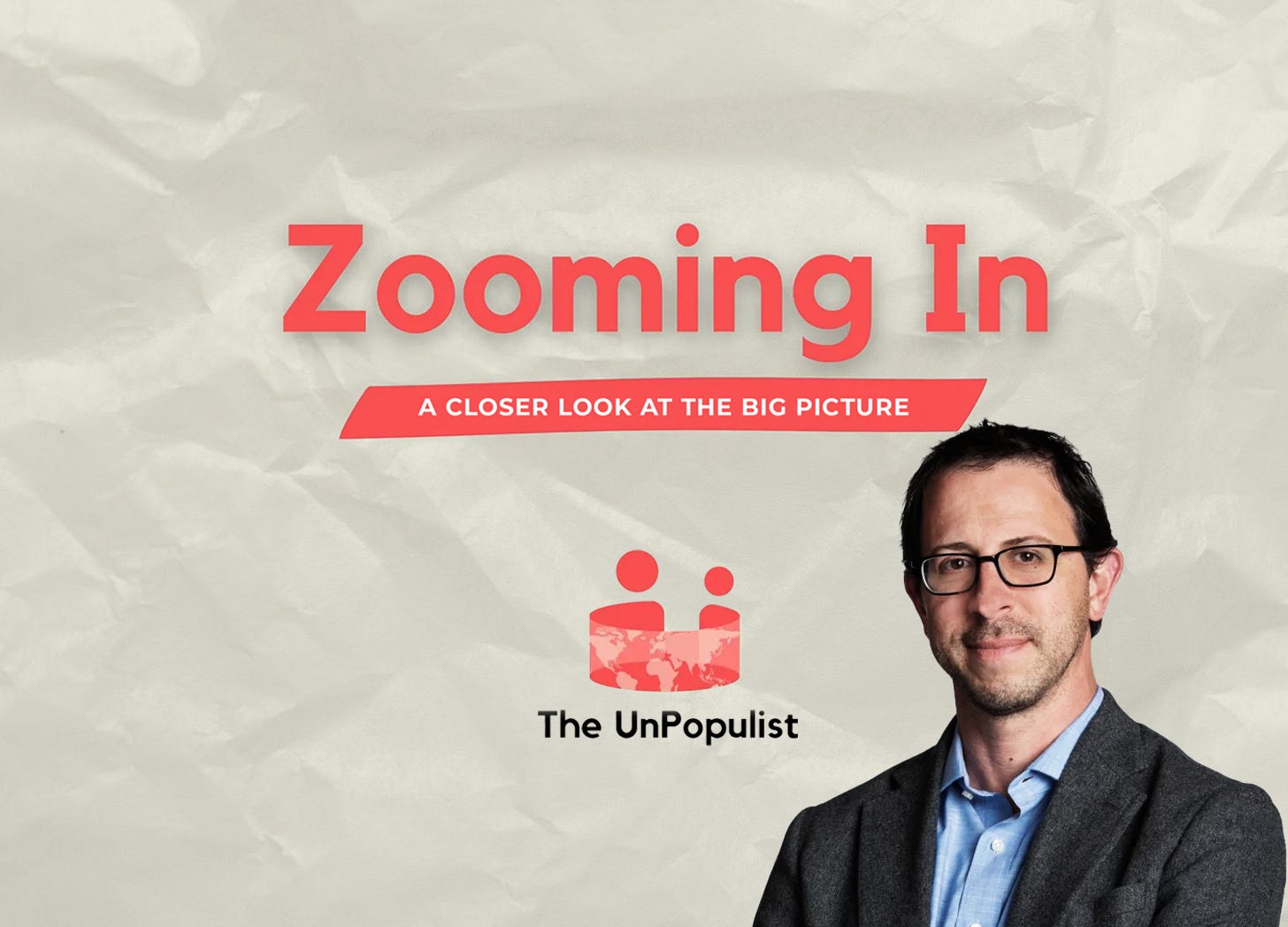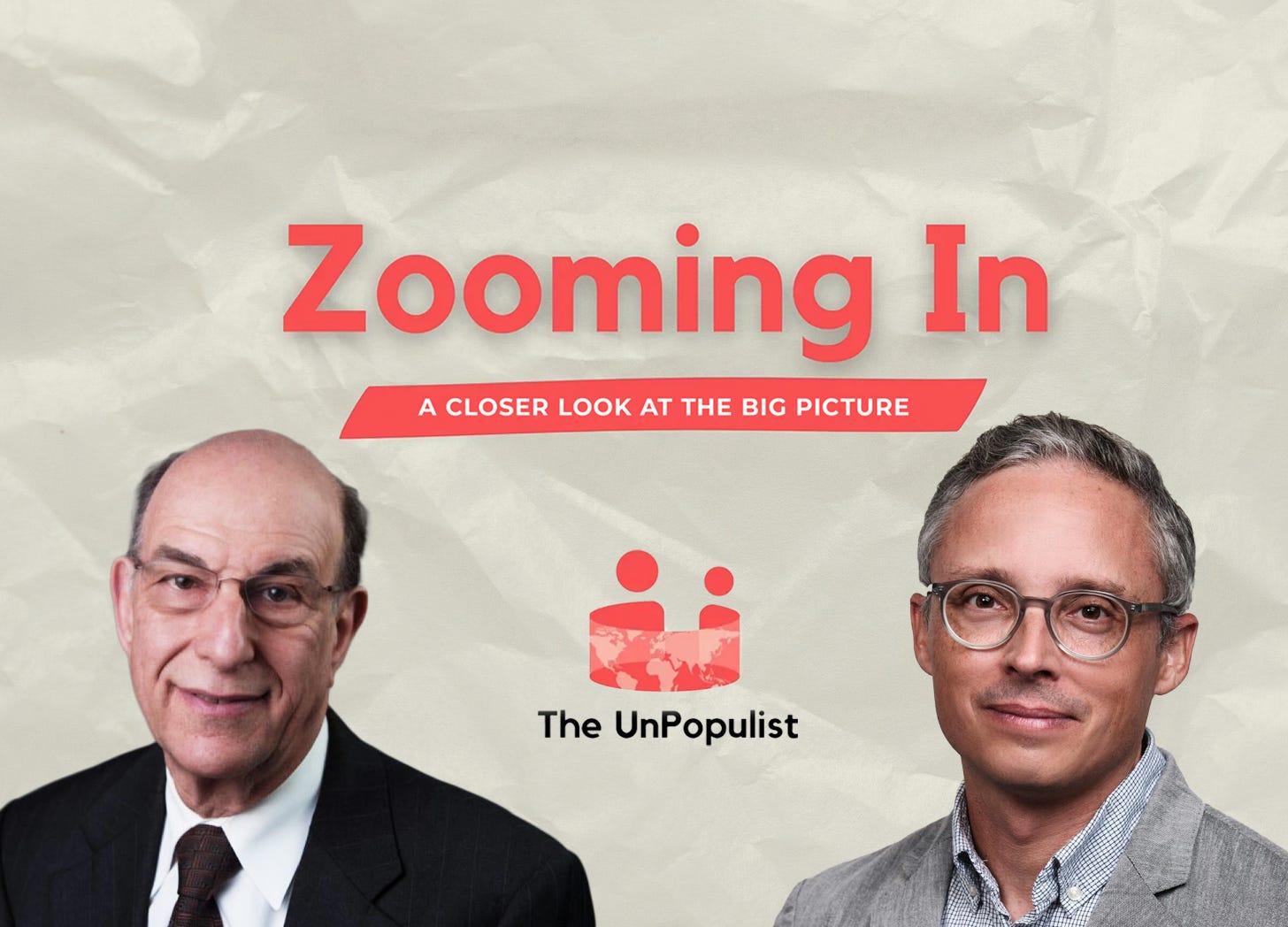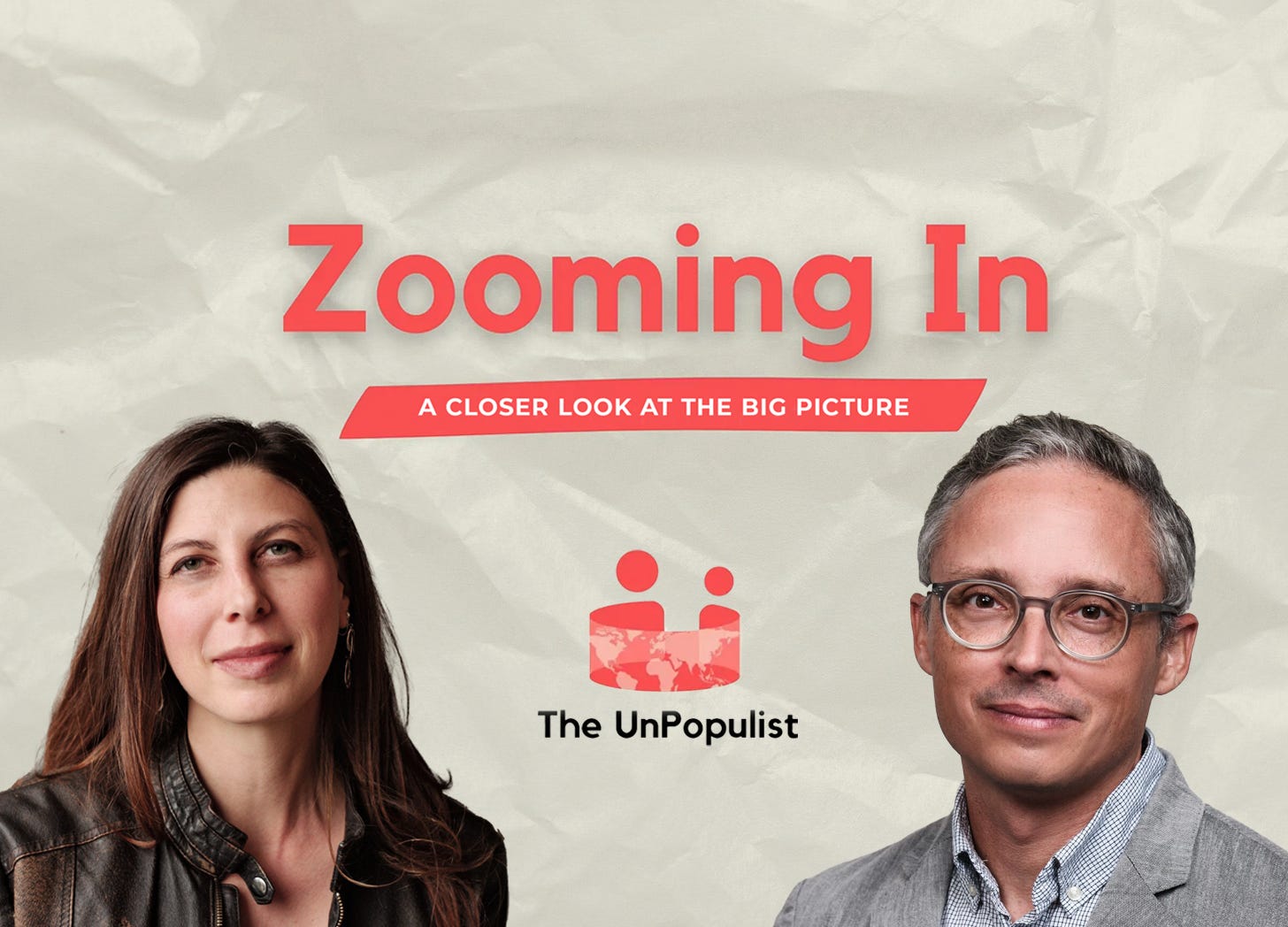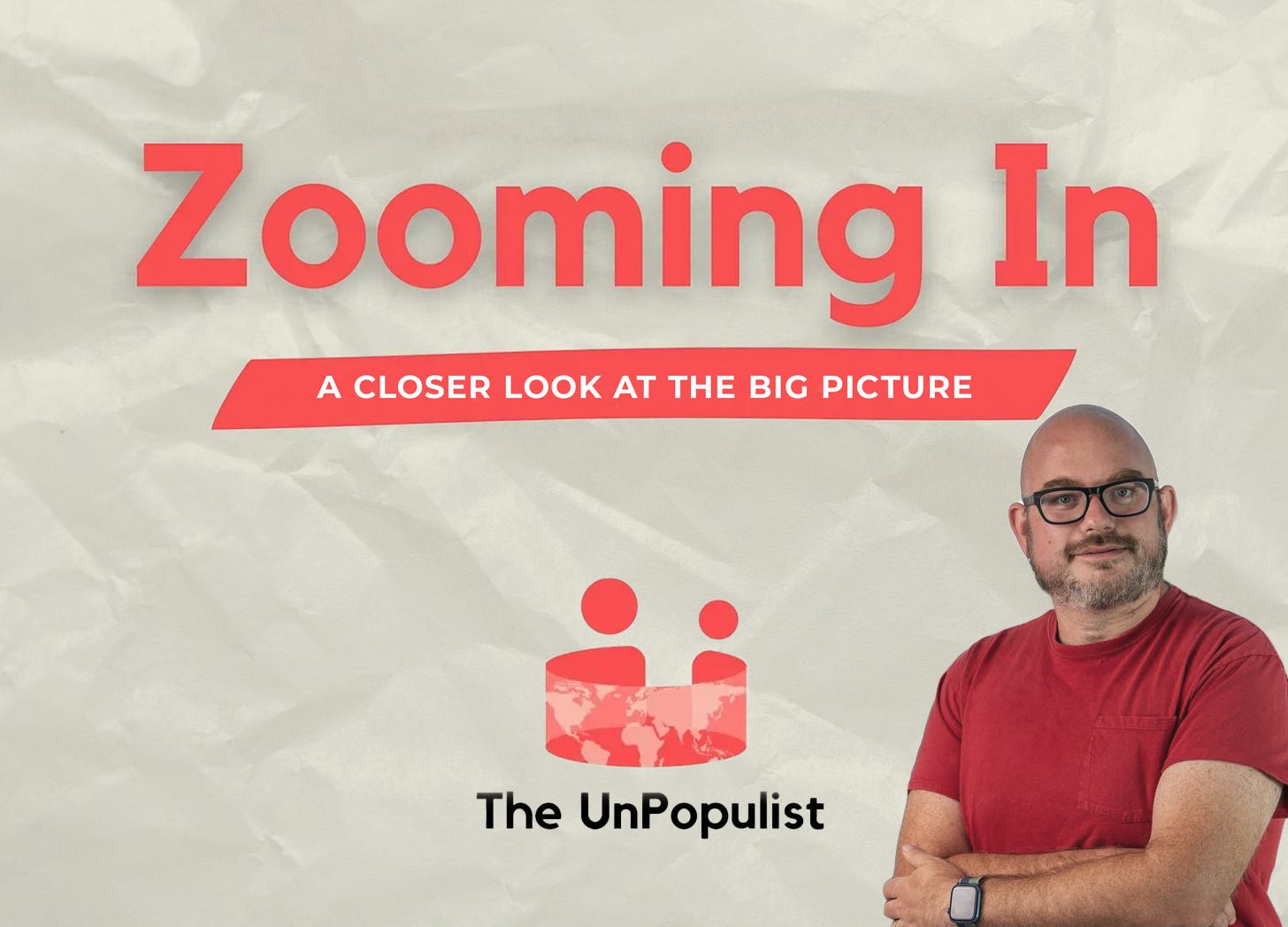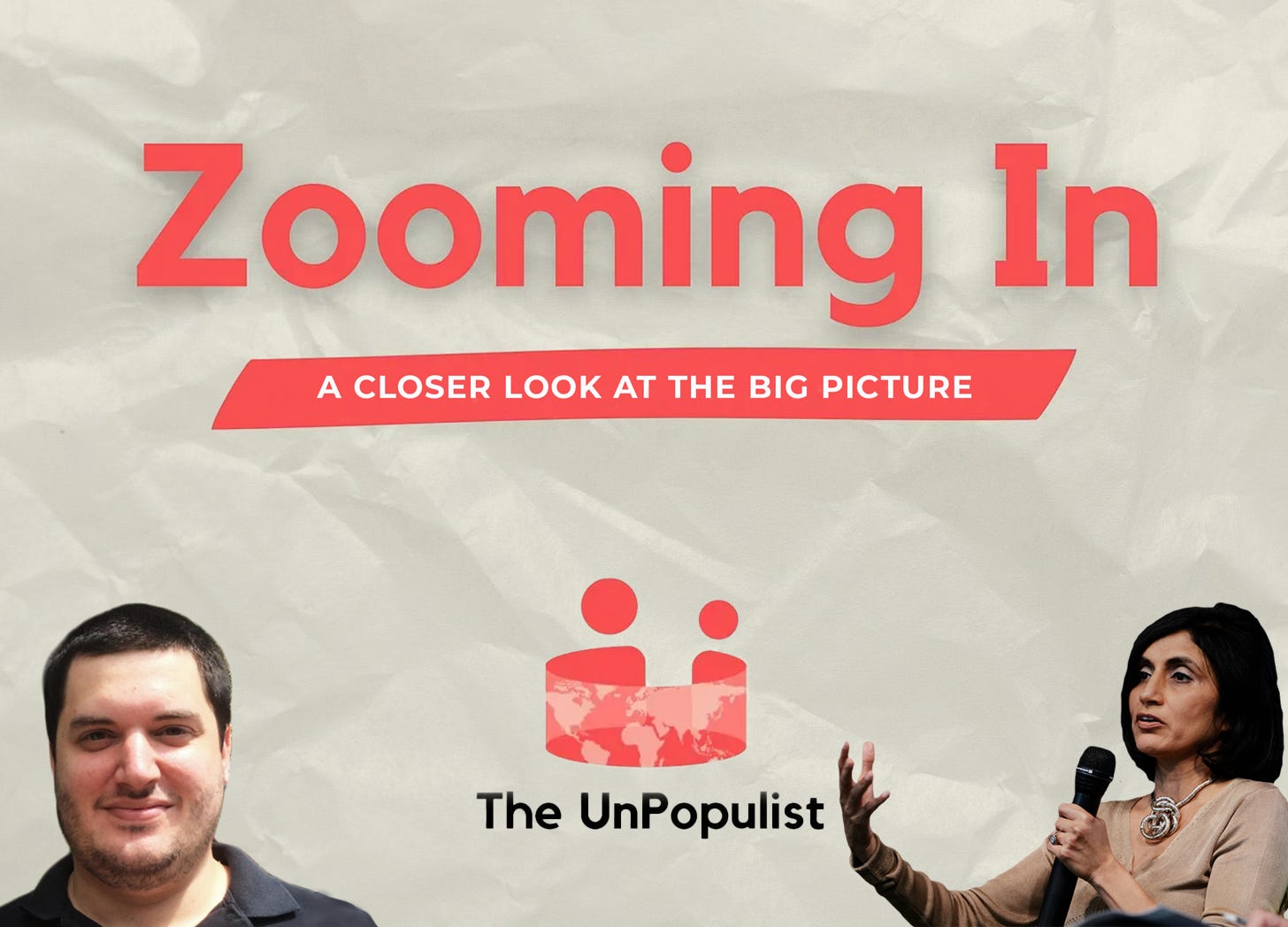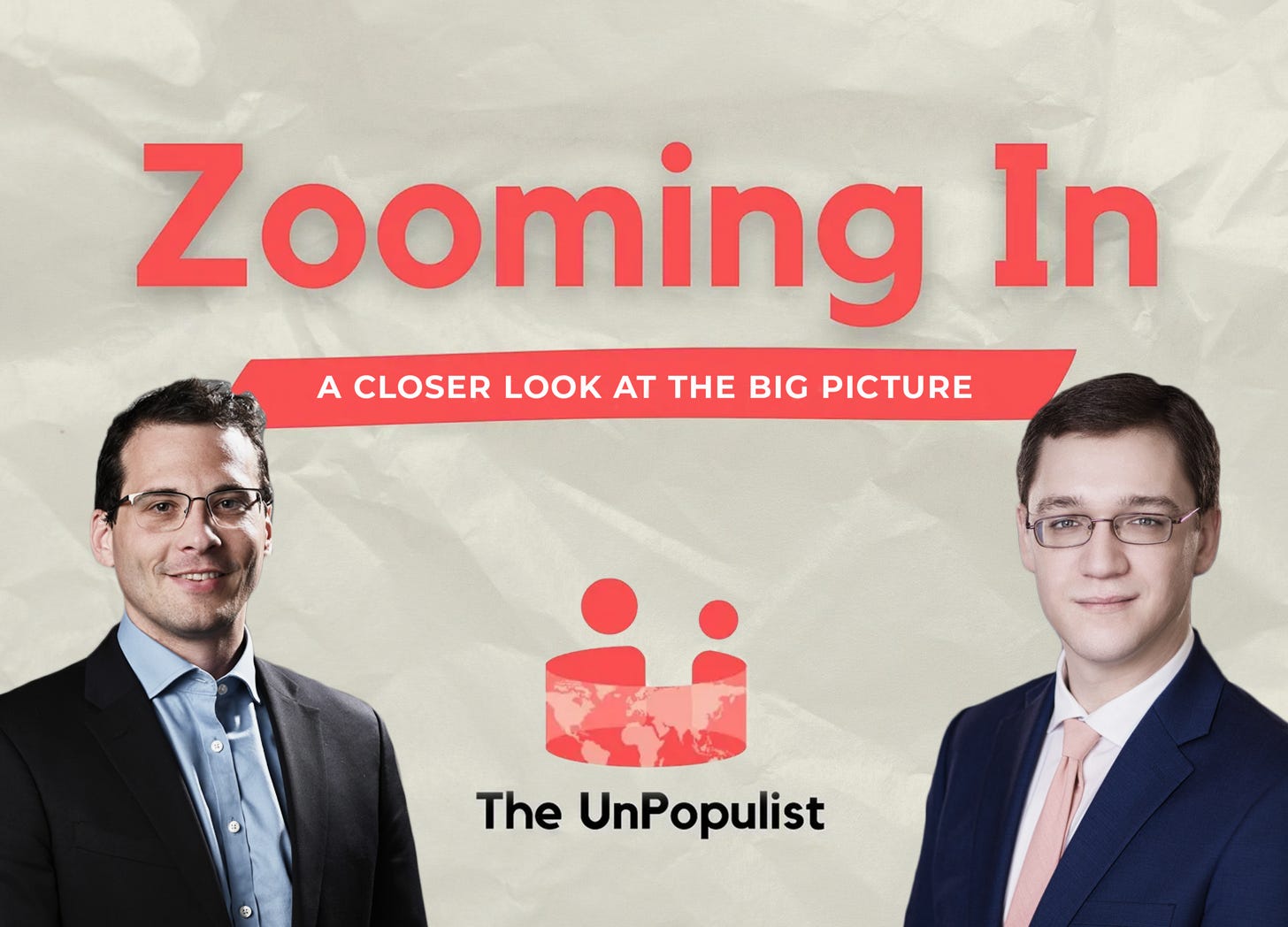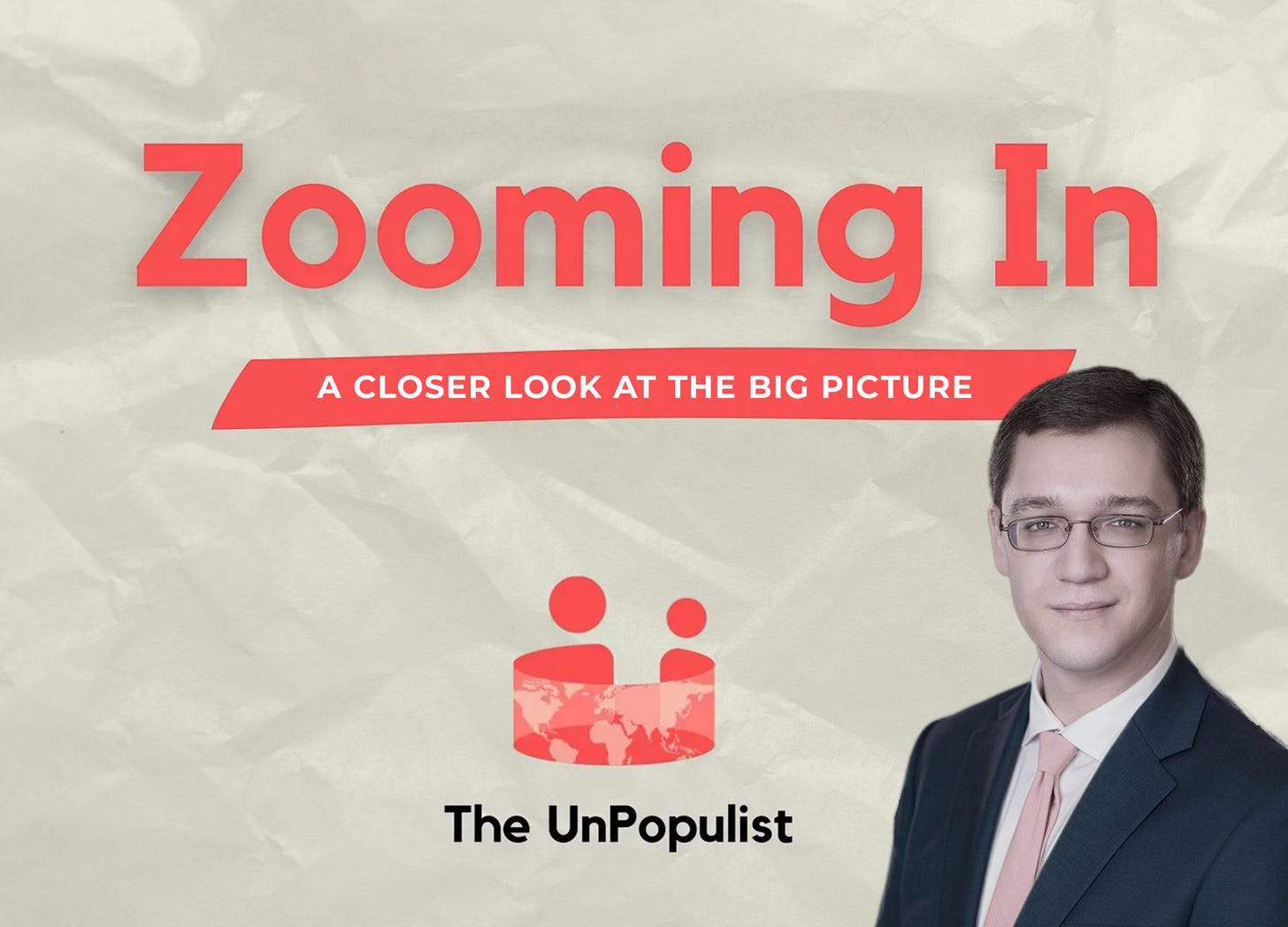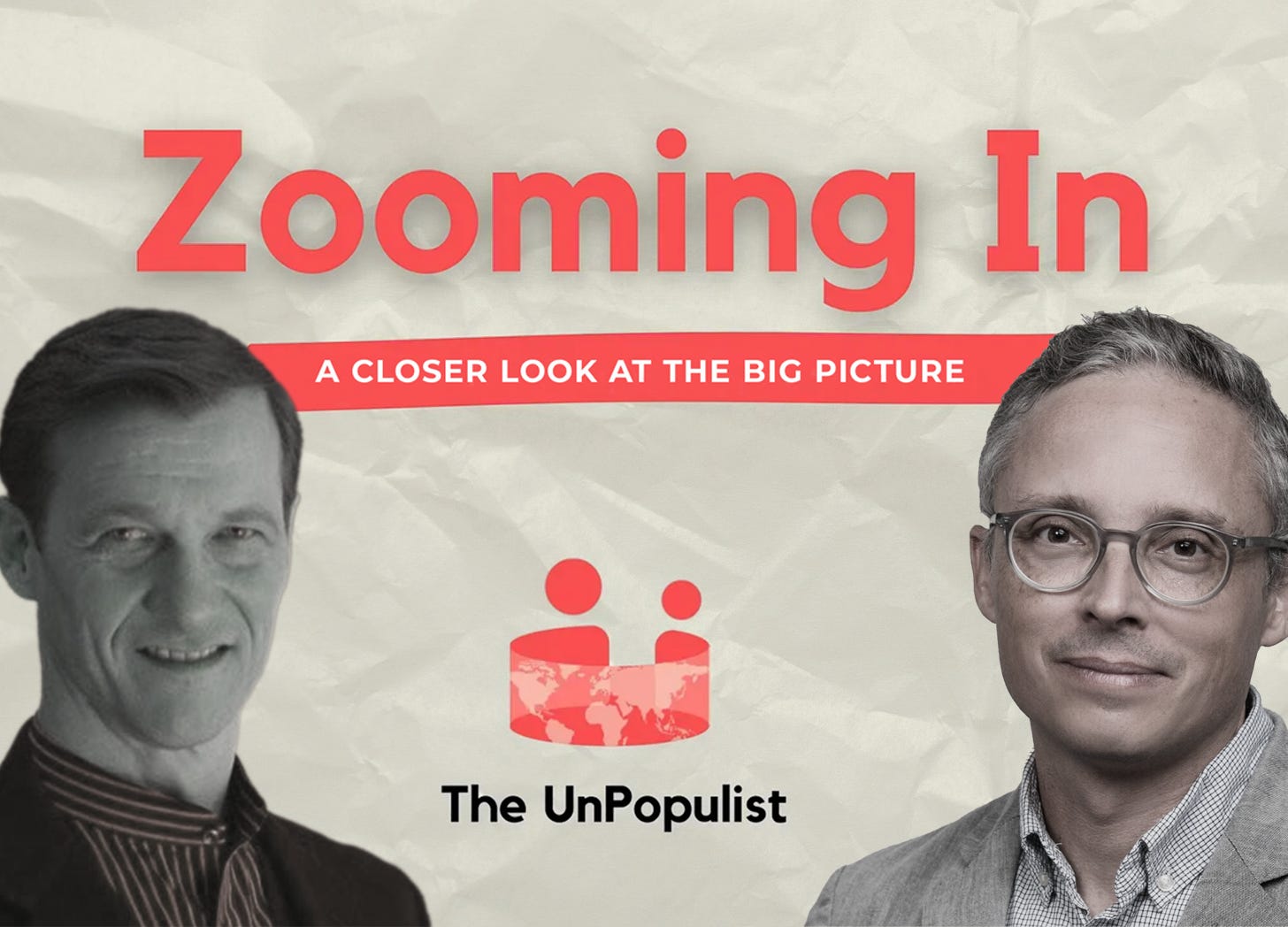The UnPopulist Turns Two
Description
Listen to Zooming In at The UnPopulist in your favorite podcast app: Apple Podcasts | Spotify | Google Podcasts | RSS
Aaron Ross Powell: Welcome to The UnPopulist Editor's Roundtable at Zooming In. I'm Aaron Ross Powell. It's our birthday. The UnPopulist is now in its terrible twos, and so today I'm joined by my colleagues Shikha Dalmia and Akiva Malamet to give a progress report on what we've accomplished in these last two years and where we see the current state of liberalism.
A transcript of today’s podcast appears below. It has been edited for flow and clarity.
Also our five favorite posts of the last 12 months.
Aaron Ross Powell: Shikha, why don't you take us away?
Shikha Dalmia: Thank you, Aaron. And thanks to Akiva and both of you for being here. It's an important milestone in The UnPopulist's life. As you mentioned, we are beginning our terrible twos, but I'm hoping that instead of throwing tantrums, we are going to make the “right kind of trouble” in the immortal words of John Lewis.
But to give our audience a bit of a progress report: Two years ago, The UnPopulist was founded with a singular mission, and that was to defend liberal democracy from the rise of the illiberal populist right. And it was going to do so by using classical liberal thought. Classical liberalism, in my view, and I think I can speak for the two of you, offers the richest intellectual resources to fight tyranny and authoritarianism in all its forms. And I felt like it was being completely underutilized, if not misused in many, many ways. And so the idea was to both defend liberal democracy and also kind of re-articulate classical liberalism itself to make it relevant for this new threat that we were confronting.
It was also my very firm belief that just like socialism in some ways was the defining threat of our times after World War II, this liberal populism of the right was going to be the threat of our generation or well, I'm very old, but future generations.
And why is that? In my view, populism in some ways, or illiberal populism, poses even a more fundamental threat to liberal democracy than socialism. And the reason is it kind of changes the relationship between the government and the governed. A liberal democratic framework is centered around the power of keeping political authority in check. And one crucial part of the check are the people. I mean, “throw the bums out” when they get too tyrannical. The premise over there is that people are going to guard their freedom. They are going to be a bulwark against authoritarianism and an authoritarian. But that changes in a populist framework where the people actually join forces with the strongman populist figure. And instead of guarding freedom, their motive becomes to use the levers of power to attack their political enemies. And so in a fundamental sense, the whole relationship in a populist polity between all the various checks and balances and institutions of liberal democracy kind of changes. And to me, there is therefore no greater threat to liberal democracy than populism.
“The premise over there is that people are going to guard their freedom. They are going to be a bulwark against authoritarianism and an authoritarian. But that changes in a populist framework where the people actually join forces with the strongman populist figure. And instead of guarding freedom, their motive becomes to use the levers of power to attack their enemies, their political enemies.” — Shikha Dalmia
And so with that understanding The UnPopulist, as the name suggests, was incubated at the Mercatus Center two years ago, and it was on a two-year grant. And after that, it needed a new home. And so I'm happy to report that even as our audience has grown, we started with 650 subscribers. We are nine times bigger now and growing rapidly every day. You guys have been an invaluable part of it. Aaron, you almost from the inception and Akiva, you a little bit later. And as we grew, we felt like we needed a new home and we've created one and it's called the Institute for the Study of Modern Authoritarianism — ISMA. It is no physical building, there's nothing bricks and mortar, but it's a platform which will give us an operational base to expand ourselves and our activities as we go forward. The UnPopulist, let me mention, is just going to be one element of this new center. We are going to do other things. We have a new editorial partnership with Persuasion which is an awesome sister Substack publication founded by Yascha Mounk, a Johns Hopkins professor. He comes from the progressive side of the spectrum and he's worried about some of the progressive excesses and threats to liberal democracy. So just as we, or at least I, see myself as an internal reformer on the right, he sees himself as an internal reformer on the progressive end of things. So we have a editorial partnership with Persuasion and we'll be promoting content and each other's work.
Another element of ISMA, the Institute for the Study of Modern Authoritarianism is going to be a polling project that Tom Shull, our editor at large, is launching to study the appeal of strongman politics in the United States. That's something that isn't very well understood or tracked. And we feel we should be able to pick up trends when people are getting more attracted to strongmen figure. And another element is going to be a liberalism conference. So our readers will be familiar with the national conservative movement and other illiberal movements on the right. And they host their own conference every year. And we think we need a conference to make a strong and strenuous and vigorous case for liberalism.
In the last two years since The UnPopulist was founded, I don't think our work [load] has diminished. I think it's actually increased because the state of the world has become, in my view, decidedly worse.
Here in America, the Republican Party seems to reach new lows every few weeks. Jan. 6th was not a shocking enough event for the party and it didn't awaken it. After the event, Trump is still the favorite to win the nomination of the party. There are 91 indictments against him and instead of being embarrassed, the Republican Party seems to think that the problem is actually with the system that's trying to hold a rogue president accountable. You know, it's been the law and order party all this long except for when it applies to its own favorite politicians. Even if Trump were in jail, that would not necessarily be a barrier to his election.
But if he were to somehow not be the nominee, the two people who are waiting in the wings are Florida Governor DeSantis and neophyte Vivek Ramaswamy. And both of them represent two different styles of populism within the GOP. De Santis has this nasty statist side where he wants to use the government to reign terror on his woke political opponents. And Vivek Ramaswamy has a different, what I call, paleo-libertarian style of populism where he wants to selectively withdraw agencies and curtail the federal governmentt so that that hurts his political opponents. Now, many of us are not opposed to reducing the size of the federal government, but the selective way in which he [Vivek] wants to do it to promote right-wing causes and diminish left-wing causes is very concerning. Add to that his kookiness and his conspiracy theory mindset, and his border hawkishness. And he is in my view and reincarnation of Ron Paul in many ways, who, the difference is that Ron Paul was an outlier when he ran in the Republican party, whereas Vivek Ramaswamy in fact speaks for the party.
Meanwhile, if you look at, look around the world in India, my home, my native country. Modi, Narendra Modi, a Hindu nationalist and a strongman, populist figure, is a hands down favorite to win elections again for the third time next year. And then if you go around the rest of the world, things are not looking a whole lot better. In Turkey, Erdogan won again, even though the opposition put up a pretty valiant fight. He still prevailed and everybody now thinks Turkey is on sort of an irreversible path to certain kind of religious illiberalism. Gone are its secular commitments.
And then if you go down the list, whether it is Italy, it is Hungary, Poland, the same thing is happening. In Germany, the Alternative to Germany which is a far right outfit, is the second largest party. It may well be in the governing coalition in the next elections. In France,


